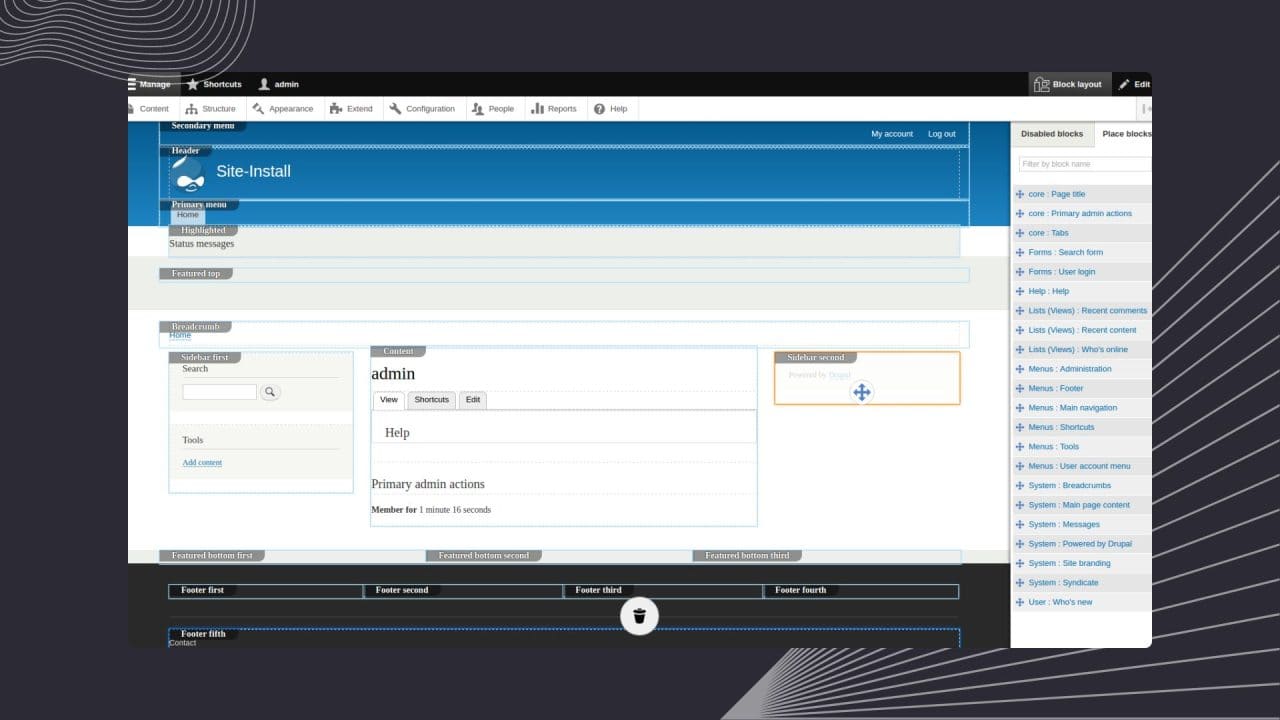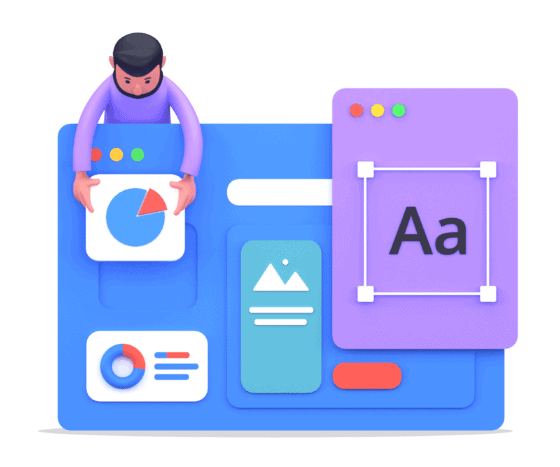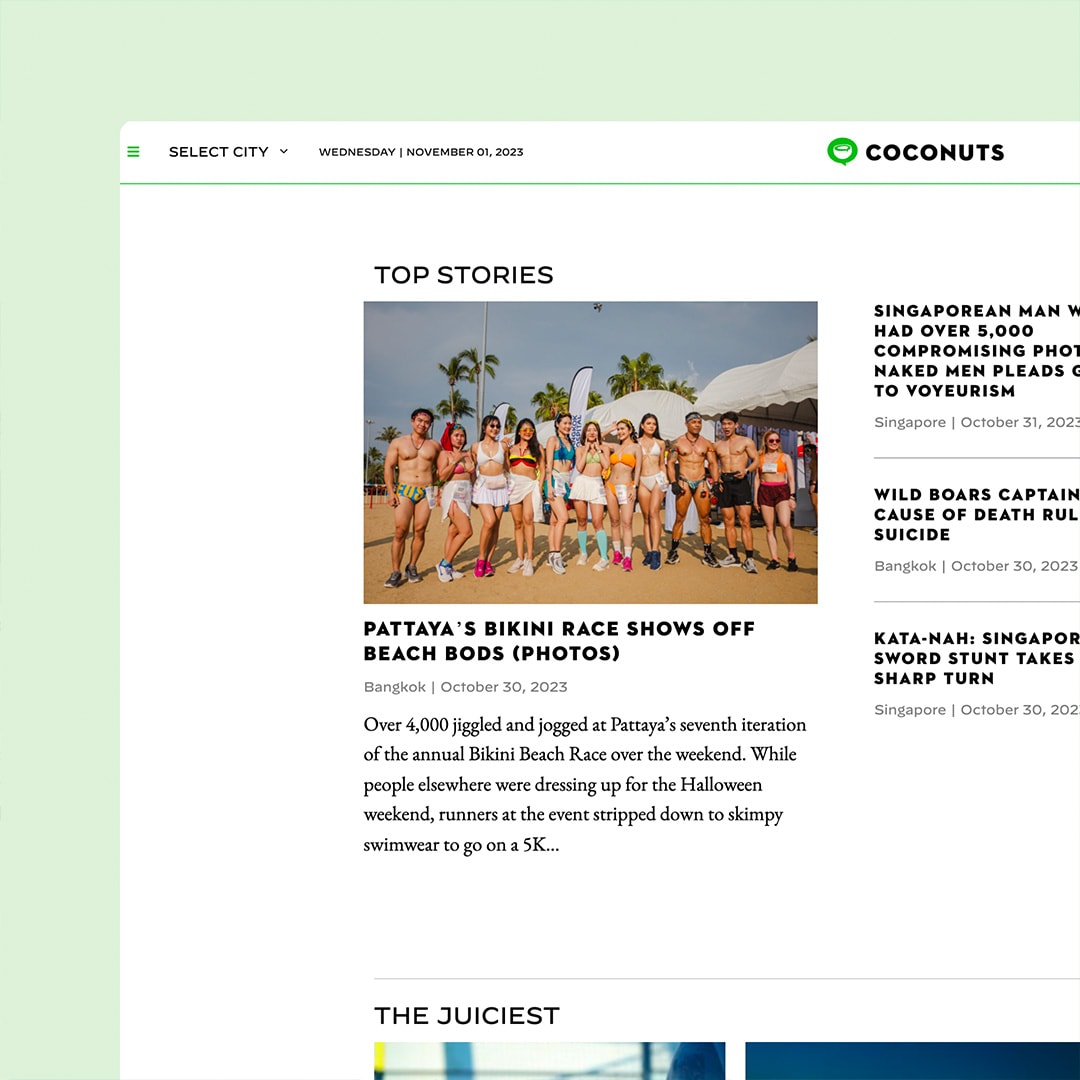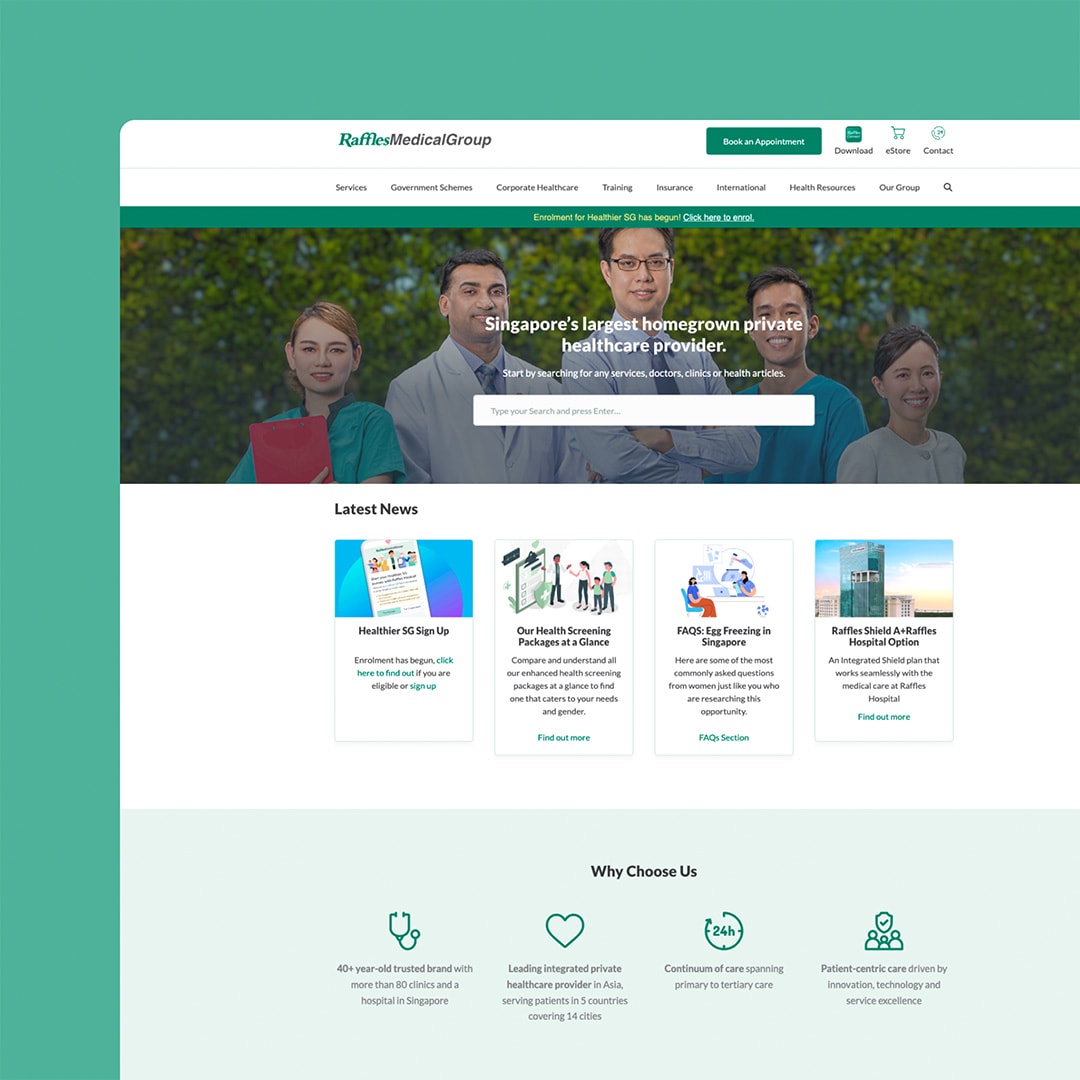
Selecting the right content management system (CMS) for your website is a decision that can significantly affect your digital presence and operational efficiency, making the ‘Drupal vs WordPress’ comparison essential for small business owners and content managers.
Both WordPress and Drupal offer comprehensive solutions for creating, managing, and publishing content on the web, each with its own set of features that cater to different types of users and objectives.
In the ‘WordPress vs Drupal’ debate, WordPress, known for its user-friendly interface and extensive array of themes and plugins, positions itself as a highly accessible platform. It’s particularly favourable for small businesses and individuals who wish to establish an online presence quickly and without requiring extensive technical skills.
In contrast, Drupal is renowned for its powerful customisation capabilities and flexibility. It offers a robust framework for handling complex websites with large volumes of content and user traffic. While this platform has a steeper learning curve compared to WordPress, it gives developers the tools to create highly tailored and sophisticated websites.
So which one is better? Let’s dive in…
Key Takeaways
- WordPress’s extensive ecosystem of plugins and themes translates into unparalleled versatility and customisation options for users of all skill levels, making it the preferred choice for those seeking both simplicity and functionality.
- The ease with which users can maintain and secure their WordPress sites, thanks to the platform’s emphasis on user-friendly design and regular updates, positions WordPress as a more convenient and reliable CMS for businesses.
- Given WordPress’s significant market share and active community, users benefit from a wealth of resources, support, and ongoing innovation, ensuring the platform remains at the forefront of content management solutions.
Table of Contents

Ease of Use
Selecting a Content Management System (CMS) often boils down to how simple it is to use for people with varying levels of technical expertise. Both WordPress and Drupal offer contrasting experiences when it comes to user-friendliness and the learning curve involved in setting up, managing, and updating a website.
At Chillybin we only build websites using WordPress, and once your new website is live, we give you a private tutorial on how to use your site. With a Drupal build, you would need to learn as you go…
Installation and Setup
Drupal: Users can launch a Drupal site efficiently, especially when using hosting that is user-friendly. Despite a straightforward initial setup with the availability of distributions for different types of websites, Drupal does have a steeper learning curve beyond basic customisations, which definitely needs some knowledge of programming.
WordPress: The WordPress installation process is widely recognised for its user-friendliness. Many hosting providers offer a one-click installation feature. Once installed, users are greeted by a user-friendly dashboard that simplifies the process of managing themes and plugins.
Dashboard and User Interface
Drupal: After installation, Drupal has a variety of options for site customisation. However, the user interface can become complex, with more advanced features requiring familiarity with programming or the assistance of a professional developer.
WordPress: On the other hand, after you install WordPress you come to a user interface that is friendly to beginners. The dashboard is a central point for website modifications and adding content, with straightforward tools for embedding media and adding imagery. This ease of use extends to users who do not possess extensive technical knowledge.
Content Management and Updates
Drupal: Owning a Drupal site can be challenging as it necessitates technical knowledge for maintaining and updating the site, usually requiring a developer’s assistance. Although it supports comprehensive content management for sites with extensive data, the update process may deter users who lack developer expertise.
WordPress: Meanwhile, WordPress affords a seamless process for updates and content management. Updating the CMS core, themes, and plugins can be achieved within the dashboard (or there are budget-friendly maintenance plans to have your WordPress website looked after for you). Content generation mirrors the simplicity of using a text editor—intuitive and straightforward.
WordPress is often favoured for its ease of initiation and maintenance, catering to users who demand simplicity and speed in content management. Drupal, while comprehensive and powerful, typically appeals to those with development skills, offering a broad scope of customisation at the expense of simplicity.
Customisation and Flexibility
WordPress and Drupal both offer extensive options for customisation and adaptability, supported by their respective libraries of themes and plugins or modules.
Themes and Templates
For those just starting out, WordPress websites provide an extensive assortment of free themes, providing a wide range of choices at little or no cost. These themes cater to different industries and styles, allowing rapid deployment of aesthetically pleasing sites. In contrast, Drupal themes offer a solid foundation for those with technical expertise, albeit with fewer out-of-the-box free options. The flexibility in Drupal’s theming system requires a higher level of skill to modify and extend.
- WordPress website:
- Large selection of free themes
- Ease of web design for beginners
- Drupal website:
- Higher technical expertise required
- Fewer free options, more customisability for developers
Plugins and Modules
Drupal’s modules and WordPress’s plugins significantly expand the functionality of websites. Drupal modules provide a powerful infrastructure for custom content types and views, allowing for detailed user permissions and access controls. WordPress plugins are abundant and cover a vast range of functions, enabling website owners to easily install third-party plugins for additional features.
- WordPress:
- Abundant WordPress plugins
- Simple installation for third-party plugins
- Drupal:
- Extensive control through Drupal modules
- Advanced access controls/user permissions
Developer Involvement and Technical Requirements
While both platforms are open-source and extensively customisable, the requirement for developer involvement differs. WordPress is known for its user-friendly interface, making it accessible for users without significant web development experience. Drupal, however, typically necessitates involvement from Drupal developers for more complex sites due to its sophisticated custom content architecture.
- WordPress:
- Less reliance on WordPress developers for minor changes
- More suitable for users with limited technical background
- Drupal:
- Drupal developers often needed for complex implementations
- Emphasises granular control and customisability at the expense of ease of use

SEO and Online Visibility
Search engine optimisation (SEO) plays a critical role when choosing between Drupal and WordPress for a website. Both platforms offer advanced SEO tools, including access to Google Analytics, advanced SEO features, and the ability to install third-party plugins for WordPress Business tier users, as well as the addition of SEO modules for meta tags, site verification, XML sitemaps, and page titles on Drupal. This comprehensive suite of tools allows users to leverage Google Analytics and inform their SEO efforts more effectively.
Built-in SEO Features
WordPress starts with an advantage for basic SEO straight out of the box. Users can easily manage their metadata, create clean URLs, and leverage a variety of SEO plugins that provide a solid foundation for good SEO practices. In contrast, Drupal also offers strong SEO capabilities, but they can require more technical understanding to implement. Drupal 8 and beyond have seen improved features, such as better content authoring and responsive designs, which are favoured by search engines like Google. It’s important to note that Drupal 7 will reach its end of life on January 5, 2025, which means it will no longer receive official support or security updates, making a migration to a later version essential for continued website security and performance.
Leveraging Google Analytics to Extend SEO Capabilities Through Plugins
WordPress SEO plugins significantly extend the platform’s native SEO capabilities. Among these extensions, Yoast SEO stands out as a comprehensive solution that simplifies the management of SEO components. It offers features like keyword optimisation, readability checks, and more. On the other hand, Drupal’s SEO can be elevated with modules that offer similar functionalities, although it might require a deeper level of expertise to install and manage these tools.
Both platforms can integrate with Google Analytics for tracking and analysing website traffic, which can help develop SEO strategies. WordPress users commonly add Google Analytics via a plugin called Site Kit, while Drupal websites can incorporate analytics through modules.
Performance and Speed
In choosing a Content Management System (CMS) for a website, performance and speed are critical factors, affecting everything from user experience to search engine rankings. Different CMS platforms handle these aspects with varying capabilities.
Handling Large Volumes of Content
Drupal excels with websites that have large volumes of content and complex page hierarchies. Its taxonomy system offers flexibility and efficiency in managing and classifying extensive content. WordPress can support large websites, but typically relies on plugins for similar taxonomy benefits. Large, complex sites may fare better with Drupal’s high-performance capabilities.
Optimising Site Speed
Website caching plays a significant role in optimising site speed. Drupal includes built-in caching features that can be fine-tuned for advanced performance optimisation. On the other hand, WordPress offers numerous caching plugins to improve performance. However, speed may be compromised by poorly coded themes or plugins. Both CMSs can achieve high performance, but their success depends on proper optimisation and quality coding.
Move your existing website to a better platform – where you remain in control.
Ready to level up your online presence? Our tailored WordPress migration service can make it happen. Contact us to start your migration project.

Security Considerations
When comparing the security profiles of Drupal and WordPress it is important for potential users to understand the core security features each platform offers as well as the responsibility users have in maintaining the security of their websites.
Core Security Features
Drupal is known for its strong security measures and is commonly used by government websites that demand high-security standards. Drupal’s core programming is designed to protect against various common security threats. For example:
- Brute Force Protection: Limiting the number of login attempts.
- Secure Access: Default configurations promote the use of strong passwords.
- Database Encryption: Advanced options for encrypting sensitive data.
In contrast, WordPress has a robust security team that focuses on regularly updating the WordPress core to defend against known security issues. The majority of WordPress updates are aimed at patching security loopholes as they become known:
- Automatic Updates: Minor updates are installed automatically, keeping security tight.
- Password Strength Meter: Assists users in creating strong passwords.
Vulnerabilities and User Responsibilities
Despite the strength of their security features, both Drupal and WordPress face challenges due to their size:
- Third-Party Plugins: With WordPress, the huge number of plugins greatly increases the risk of security vulnerabilities. It’s vital for users to constantly update plugins and choose those with good security track records.
- Outdated Versions: Running outdated versions of Drupal or WordPress can expose a site to known security issues.
The responsibility lies with the user to regularly update their CMS core and components, use complex passwords, and select reputable plugins or modules to maintain a secure website environment. Users must be aware of the security advisories published by both Drupal and WordPress and act accordingly to address known vulnerabilities (though if you have a WordPress website, we can handle this for you with our Website Maintenance & WordPress Support package).
Cost Analysis
When choosing between Drupal and WordPress, it’s essential to understand the financial implications, considering both initial setup costs and long-term expenses.
Initial and Ongoing Costs
WordPress:
- Web Hosting: WordPress hosting starts at affordable rates for basic plans, but expenses increase for managed services or high-traffic sites.
- Themes and Plugins: While many plugins are free, premium plugins can be costly.
- Customisation: WordPress is user-friendly, but complex customisations may require professional help which leads to additional costs.
Drupal:
- Web Hosting: Hosting for Drupal may be more expensive due to its need for advanced server resources.
- Drupal Commerce: As an e-commerce solution, Drupal Commerce itself is free, but costs arise from development, customisation, and maintenance.
- Customisation: Drupal potentially demands more developer involvement, escalating the price for in-depth customisation.
Hidden Costs and Considerations
Web Hosting:
- Some hosting companies offer low introductory prices that significantly rise upon renewal.
- Hosting plans might not cover all your needs, resulting in extra charges for security, backups, or additional bandwidth.
Premium Plugins and Extensive Plugin Ecosystem:
- The cost of premium plugins can accumulate, especially when annual licenses require renewal.
- An extensive plugin ecosystem means ongoing costs to keep all tools up-to-date and secure.
Complex Customisation Requirements:
- Custom-built solutions and aesthetics often escalate the cost for both platforms, sometimes necessitating a developer’s expertise.
- As requirements evolve, so too might the need for additional plugins or developer time, contributing to the overall financial investment.

Community and Support
Both WordPress and Drupal boast substantial communities that are actively involved in improving the experience for all users, through a combination of collaborative development, forums, and resource availability.
Developer and User Communities
Drupal Community: A global collective that’s actively engaged in discussions, events, and various initiatives. It covers both users and developers, providing a space for collaboration and mutual assistance. Many Drupal users find value in local meetups, global DrupalCon events, and active online forums.
WordPress Community: Renowned for its size and dedication, it comprises millions of individuals worldwide who create, use, and manage WordPress sites. This community grows consistently and drives the platform’s expansion, sharing knowledge on numerous community forums and through WordCamps — locally organised, informal conferences covering everything related to WordPress.
Access to Support and Resources
Technical Support: WordPress users benefit from a massive range of resources, including extensive documentation, multiple support forums, and an abundance of service providers offering professional assistance.
Drupal Calls: Drupal offers its own substantial documentation, community-run forums, and commercial support options for technical assistance. Despite being smaller in size compared to the WordPress community, Drupal’s support network is comprehensive and well-regarded among its users.
Both platforms provide a wealth of tutorials, articles, videos, and other online resources generated by the community, which serves as a foundation for learning and troubleshooting for both novice users and experienced developers.
WordPress vs Drupal: Final Thoughts
When weighing Drupal against WordPress, it’s clear that each platform shines in its own way, aligning with different user needs and project goals.
Summary of Differences
- Drupal:
- Excels with complex data organisation and taxonomy
- Offers in-depth customisation for those with development expertise
- Ideal for large-scale, content-heavy websites
- WordPress:
- User-friendly with a more intuitive interface
- Extensive collection of themes and plugins for various functionalities
- Dominates the market as a popular content management system
Final Recommendations Based on User Needs
For individuals or small businesses aiming to quickly establish an online presence without extensive technical know-how, WordPress emerges as the superior choice. Its intuitive design simplifies site management and content creation, which can be especially beneficial for users with limited web development experience.
Conversely, for organisations with intricate content needs and a desire for a highly customisable platform, Drupal is a strong contender.
Ultimately, the decision hinges on the specific needs and technical capabilities of the user. WordPress, with its ease of use and strong community backing, is often the go-to for a broad range of web projects, while some larger companies choose Drupal for its advanced features and flexibility as they already have the resources to harness its full potential.
If WordPress is the right choice for your project, contact us today so we can move your business forward together.










